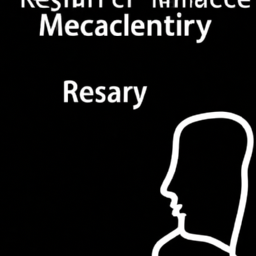The U.S. Supreme Court recently handed down a decision in a case that has important implications for how federal agencies can regulate businesses. The case, Georgia-Pacific West, Inc. v. Environmental Protection Agency, involved the EPA’s attempt to regulate a company’s process for disposing of certain hazardous waste. The company challenged the EPA’s authority to regulate the disposal process, and the Supreme Court agreed, ruling in favor of the company.
The Supreme Court’s ruling has wide-reaching implications for HR professionals, as it shows that the Court is increasingly willing to respect the rights of individuals and companies to challenge the authority of federal agencies. This decision could have a significant impact on how companies handle employment-related issues.
The Supreme Court’s ruling in this case was based on a concept known as the “Chevron doctrine,” which holds that courts should defer to an agency’s interpretation of a statute if it is reasonable. In this case, the Court found that the EPA’s interpretation of a particular provision was not reasonable, and thus it was not entitled to deference. This decision reinforces the idea that the Supreme Court is willing to limit the power of federal agencies to regulate businesses.
For HR professionals, this decision is an important reminder that agencies do not always have the authority to regulate certain aspects of a company’s operations. It is important to understand the limits of an agency’s authority, and to be aware of when a company’s rights may be infringed upon by an agency’s attempts to regulate.
For example, the EEOC is charged with enforcing certain laws prohibiting workplace discrimination. The Supreme Court’s decision in this case suggests that the EEOC may not be able to impose regulations that go beyond what is explicitly authorized by the underlying laws. This means that companies may be able to challenge EEOC regulations if they feel that the regulations are overly restrictive or otherwise exceed the agency’s authority.
The Supreme Court’s decision in this case should also serve as a reminder to HR professionals that agencies do not always have the final say when it comes to regulating businesses. Companies can and should challenge regulations that they feel are overly restrictive or beyond the scope of the agency’s authority. This could include challenging the EEOC’s regulations on discrimination, the NLRB’s regulations on collective bargaining, or the DOL’s regulations on wage and hour issues.
Overall, the Supreme Court’s decision in Georgia-Pacific West, Inc. v. Environmental Protection Agency is an important reminder that companies have the right to challenge regulations that they feel are overly restrictive or beyond the scope of the agency’s authority. HR professionals should be aware of this decision and its implications for how they should approach employment-related issues. By understanding the limits of an agency’s authority and being willing to challenge regulations when appropriate, HR professionals can help ensure that their companies’ rights are respected and that their businesses remain compliant with the law.



